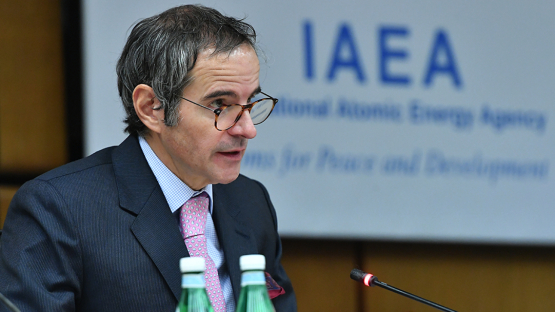Mr Grossi gave an overview of the implementation of the Zoonotic Disease Integrated Action, or ZODIAC, an initiative to strengthen global preparedness for future pandemics. He told Board members that the Agency so far had assisted 128 countries and territories with the technology and knowledge they need to battle COVID-19 through RT-PCR testing to great effect. The Agency has provided testing services “that have helped more than 28 million people so far,” he said.
It is this support that is being expanded under ZODIAC.
“ZODIAC will be your contribution to reducing the chance that the next outbreak wreaks the deadly destruction we are suffering today,” Mr Grossi told the IAEA’s governing board. Highlighting the urgency with which the international community engages with ZODIAC, the Food and Agriculture Organization of the United Nations (FAO) and the IAEA last week signed revised arrangements to facilitate this work under the newly renamed Joint FAO/IAEA Centre of Nuclear Techniques in Food and Agriculture.
“We will help Member States respond to emerging challenges from climate change to outbreaks of zoonotic diseases,” he said.
Mr Grossi also gave an overview of the ongoing modernization of the IAEA nuclear applications laboratories near Vienna, in a project known as ReNuAL. Five of the eight laboratories at Seibersdorf are now operating in modern facilities using state-of-the-art equipment.
“These new facilities have greatly strengthened the Agency’s capacities to support Member States in reaching their Sustainable Development Goals,” Mr Grossi said. To complete the work and improve the laboratories that help Member States address growing environmental and climate challenges, an additional €11.8 million is urgently needed. “I would be grateful if those Member States in a position to do so would consider an early contribution towards this goal.”





